 When you hear the word Hybrid you may have images of Prius’s or maybe even the south park episode where they called all Hybrid owners fart sniffers. You may be surprised to find out that you can get hybrids in the computer industry, specifically in storage. With SSD’s gaining popularity it’s not a surprise that manufactures are looking at ways to bring SSD performance with a normal hard drives capacity and price. Today I have the chance to take a closer look at the Momentus XT from Seagate. This is a 2.5inch laptop drive with 4 gigs of SLC NAND (solid state flash) attached to the PCB to give you just that.
When you hear the word Hybrid you may have images of Prius’s or maybe even the south park episode where they called all Hybrid owners fart sniffers. You may be surprised to find out that you can get hybrids in the computer industry, specifically in storage. With SSD’s gaining popularity it’s not a surprise that manufactures are looking at ways to bring SSD performance with a normal hard drives capacity and price. Today I have the chance to take a closer look at the Momentus XT from Seagate. This is a 2.5inch laptop drive with 4 gigs of SLC NAND (solid state flash) attached to the PCB to give you just that.
Product Name: Seagate Momentus XT
Review Sample Provided by: Seagate
Review by: Wes
Pictures by: Wes
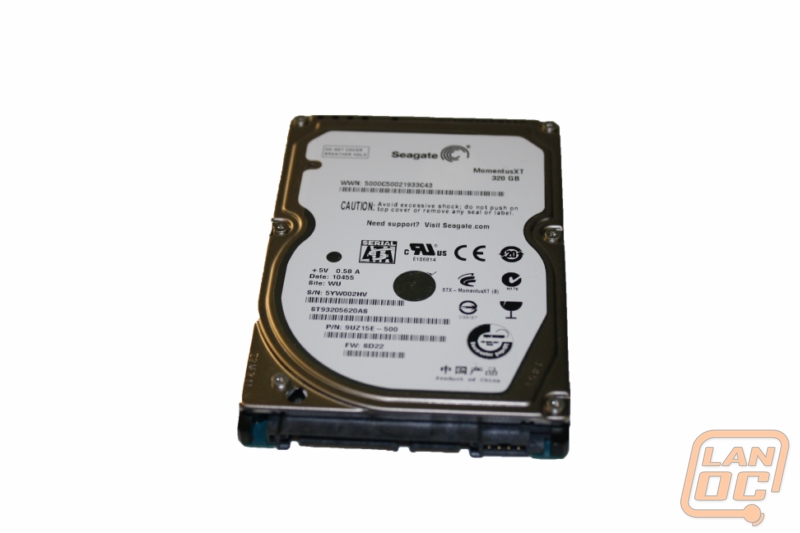
Specifications
|
Speci?cations |
500GB |
320GB |
250GB |
|
|
Model Number |
ST95005620AS |
ST93205620AS |
ST92505610AS |
|
|
Solid State Memory, SLC NAND (GB) |
4 |
4 |
4 |
|
|
Interface |
SATA 3Gb/s NCQ |
SATA 3Gb/s NCQ |
SATA 3Gb/s NCQ |
|
|
Cache (MB) |
32 |
32 |
32 |
|
|
Con?guration |
|
|||
|
Bytes per Sector |
512 |
512 |
512 |
|
|
Reliabilty/Data Integrity |
|
|||
|
Head-Rest Method |
QuietStep™ Ramp Load |
QuietStep™ Ramp Load |
QuietStep™ Ramp Load |
|
|
Load/Unload Cycles |
>600,000 |
>600,000 |
>600,000 |
|
|
Nonrecoverable Read Errors per Bits Read |
1 per 10E14 |
1 per 10E14 |
1 per 10E14 |
|
|
Power Management |
|
|||
|
Power (W) |
|
|
||
|
Seek, Typical |
1.554 |
1.554 |
1.554 |
|
|
Idle, Typical |
0.8 |
0.8 |
0.8 |
|
|
Environmental |
|
|||
|
Temperature (°C) |
|
|
||
|
Operating |
0 to 60 |
0 to 60 |
0 to 60 |
|
|
Nonoperating |
?40 to 70 |
?40 to 70 |
?40 to 70 |
|
|
Shock (Gs) |
|
|
||
|
Operating: 2ms |
350 |
350 |
350 |
|
|
Nonoperating: 1ms |
1000 |
1000 |
1000 |
|
|
Acoustics (bels—sound power) |
|
|
||
|
Idle, Typical |
2.3 |
2.3 |
2.3 |
|
|
Seek, Typical |
2.5 |
2.5 |
2.5 |
|
|
Physical |
|
|||
|
Height (in/mm) |
0.370/9.5 |
0.370/9.5 |
0.370/9.5 |
|
|
Width (in/mm) |
2.75/69.85 |
2.75/69.85 |
2.75/69.85 |
|
|
Depth (in/mm) |
3.951/100.35 |
3.951/100.35 |
3.951/100.35 |
|
|
Weight (lb/g) |
0.238/110 |
0.238/110 |
0.238/110 |
|
About Solid State Hybrid Technology
Anyone can add a few gigs of SLC NAND to their hard drive and call it a hybrid making everything work together is where it’s at. Seagate created what they call Adaptive Memory technology that maintains the 4 gigs of NAND. The Adaptive Memory figures out the files you use the most and copy’s them over to the much faster SSD portion. This means that you get SSD performance on files that you use the most, but you don't waste the expensive NAND on files that you may only access once in a blue moon.
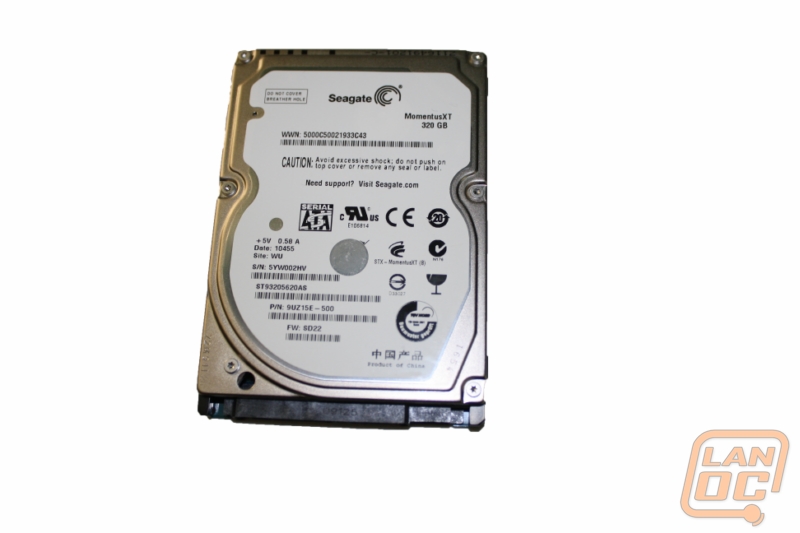
Our Test Rig
Intel i5 661
Gigabyte GA-EXS8-UD4P
8 gigs of DDR3 Crucial Ballistix Tracer Ram
Cooler Master Silent Pro M 850 PSU
OCZ Agility SSD
DVD Burner
Gelid Solutions Tranquilo heatsink
and it currently has a 5770 in it (not pictured)
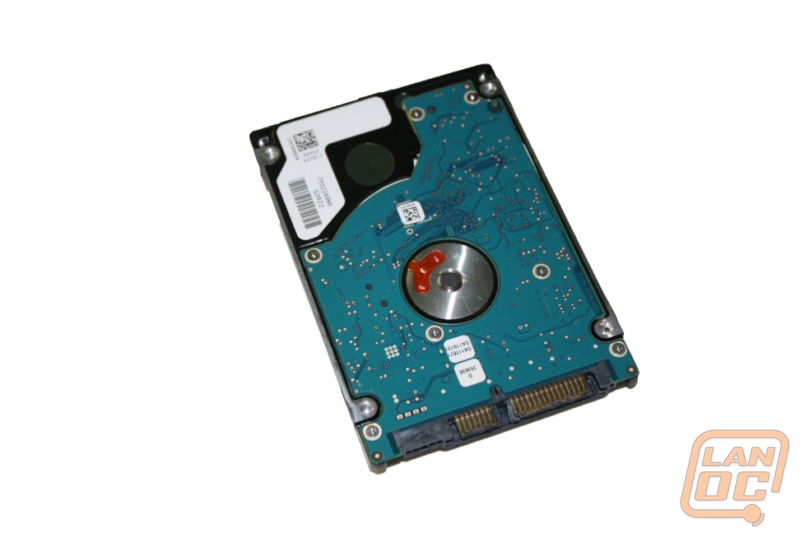
Performance
Because of the Momentus XT’s unique design I had to try out a few new tests to try to show how it can help you. Of course, I still used our normal tests also. Here are our results.



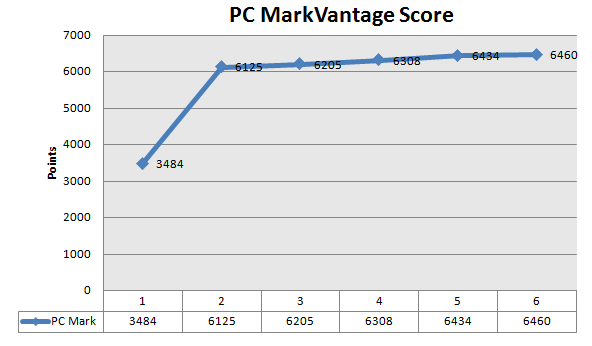

You can see on most of our normal tests the Momentus doesn’t really shine, the reason for this is the adaptive memory needs to see a file used multiple times before it starts to move them over. In this case our tests use random files. Our random access test does show the Adaptive Memory, but my first result was in line with the other hard drives. I made a graph of my results while testing using PCMark Vantage’s hard drive tests. Over the six tests, you can see the performance improvement.
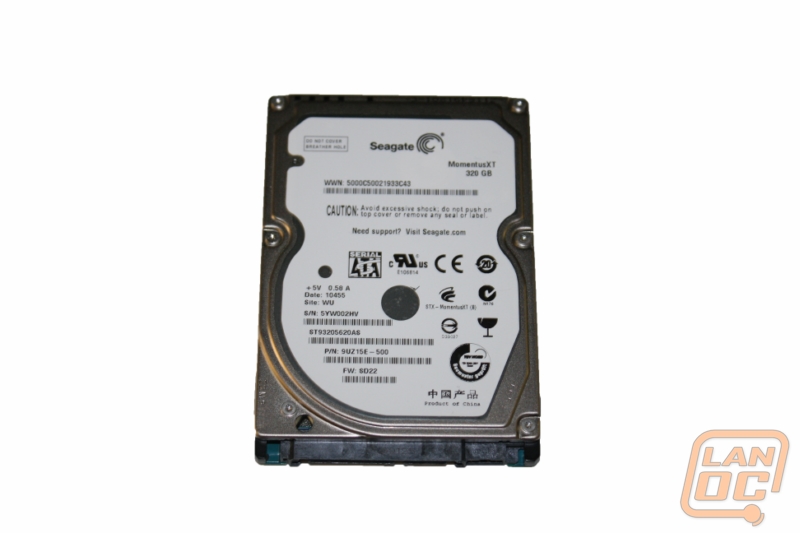
Even those tests don’t really show off the drives real world performance. With windows installed, the boot times jumped from a first time boot of 26 seconds to 16on second boot, and 15 on 3rd. A quick glance at customer reviews posted on a popular retail website shows that some people are experiencing noisy drives; our test drive did not have this issue. The vibration level was in line with the 5200-RPM drive used in my laptop.
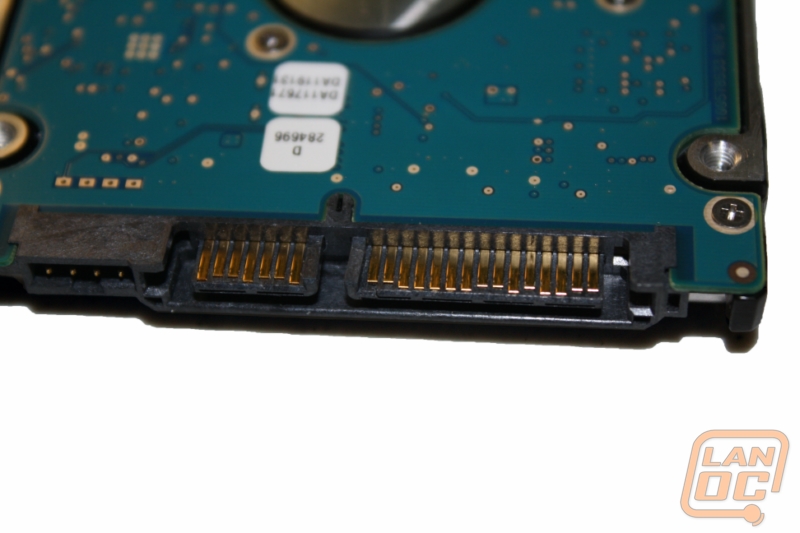
Overall
So you can see a performance increase with your most used files without having to pay the premium that SSD’s currently go for. It’s obvious that this will be the technology that we see filter into our larger drives. Of course, write speeds are no different than current 7200RPM drives. I can’t wait to see this technology mature and move into 3.5 inch drives. I would love to see one with 10 to 20 gigs of adaptive memory to go with a much larger disc drive. At that size, Seagate could have everything write to the SSD and the adaptive memory could move the files that don’t get used to the slower disc drive. In that configuration, we would see SSD performance in our tests, and more often in day-to-day activities. That’s not saying you shouldn’t check this out now, the price for this kind of performance is amazing when compared to current generation SSD’s. This drive will no doubt find its way into use in one of our test rigs or laptop.


